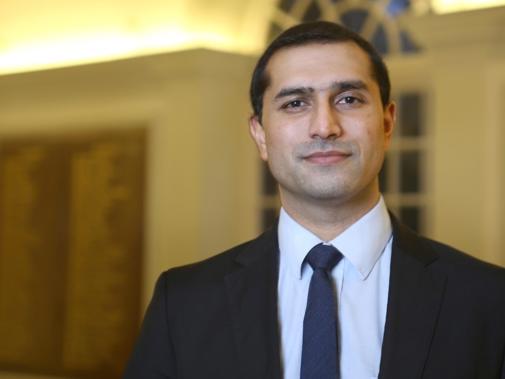I have been pleased to see increased awareness of the negative impact of the breaching of annual pension saving allowance tax, which has led to nearly double the amount of armed forces personnel being hit with tax charges, as highlighted by this article in the Financial Times.
The FT reports that 4,140 members of the Armed Forces Pension Scheme had exceeded their annual allowance in 2019-20.
This was an 80% increase on the 2,300 breaches recorded in the previous tax year and put the number of armed forces personnel exceeding the annual allowance at a record high since a peak of 3,920 people in 2016-17.
As the article explains, this is a result of the Government making successive cuts to the annual allowance since the 2010-11 tax year – reducing the threshold from £255,000 to £40,000 – which has brought more high earners into the scope of tax charges.
However, annual allowance is not the only issue, as the current pensions tax system results in the triple taxation of pension benefits, not only through annual allowance but also through lifetime allowance and income tax. This affects not only armed forces personnel, but a wide range of public sector workers.
But why, you may ask, does this issue deserve our attention, when it only affects high earners? The reality is that one of the groups most affected by these charges are doctors – doctors not just working in the NHS, but in the armed forces and elsewhere – and as chair of the BMA pensions committee, I cannot stress enough how much of an impact this is having on doctors and the resulting knock-on effects on patient care.
Due to pensions taxation issues, doctors are opting out of savings, declining extra shifts or considering early retirement to avoid spiralling tax bills.
This in turn creates significant issues with the recruitment and retention of doctors, and is arguably the biggest challenge we face in ensuring we have sufficient experienced staff to provide the care patients need.
When specifically considering armed forces doctors:
- 46% of medical officer respondents to the armed forces continuous attitude survey of 2019 said that they were likely or very likely to apply to leave their service in the next year
- 63% were very likely or likely to apply to leave their service in the next three years
- 87% were very likely or likely to apply to leave their service in the next 10 years based on their knowledge and/or experience of the impacts of the annual allowance and lifetime allowance policy
- 85% of respondents reported that they were very likely or likely to turn down duties attracting additional pay.
BMA armed forces members have told us that relatively junior non-medical personnel, including those commissioning from the ranks, are being affected by annual allowance charges. This is despite the Government’s intentions for annual allowance charges to affect only the most highly paid staff.
The AFPRB (Armed Forces’ Pay Review Body) which provides independent advice to the prime minister and the secretary of state for defence on the pay and charges for armed forces personnel, makes recommendations on armed forces pay so that it is comparable with equivalent civilian employment, and it takes pensions into account when doing this. The non-contributory nature of the pension does not, therefore, represent any additional reward above what is earned through service personnel’s hard work.
Doctors in the armed forces have faced many of the same problems as their civilian colleagues, including the perverse incentive to reduce income due to the greater than 100% tax rate created by the taper rules. However, unlike their civilian colleagues, they have not been able to do anything about it. For example:
- It is not practical for armed forces doctors to reduce their hours in order to reduce their pay in the way that civilian colleagues have been able to do
- Since the armed forces pension is non-contributory, armed forces doctors receive no compensation when they leave the pension scheme in order to reduce pension growth
- If armed forces personnel opt out of the armed forces pension scheme, they would lose/reduce their death in service benefits and reduce their ill health retirement benefits – hardly a wise course for military personnel
- Armed forces doctors have been excluded from the NHS annual allowance compensation scheme, which guarantees that a clinician who is a member of the NHS England or Wales pension scheme, who has incurred an annual allowance tax charge for 2019-20 and who elects to pay this charge via scheme pays, will be compensated at the time of their retirement.
Armed forces doctors have made a huge contribution to patient care during the COVID-19 pandemic, working alongside NHS colleagues and performing crucial roles such as leading the building of Nightingale hospitals.
Many have been deployed overseas at a time when this has meant leaving families behind without normal support structures due to pandemic isolation.
As with NHS doctors and the wider NHS workforce, the armed forces are also struggling with high levels of vacancies in its medical officer workforce, worryingly low morale and increasingly high burnout rates. Triple pension taxation is not how any doctor or public sector worker should be rewarded.
Vishal Sharma is BMA pensions committee chair

